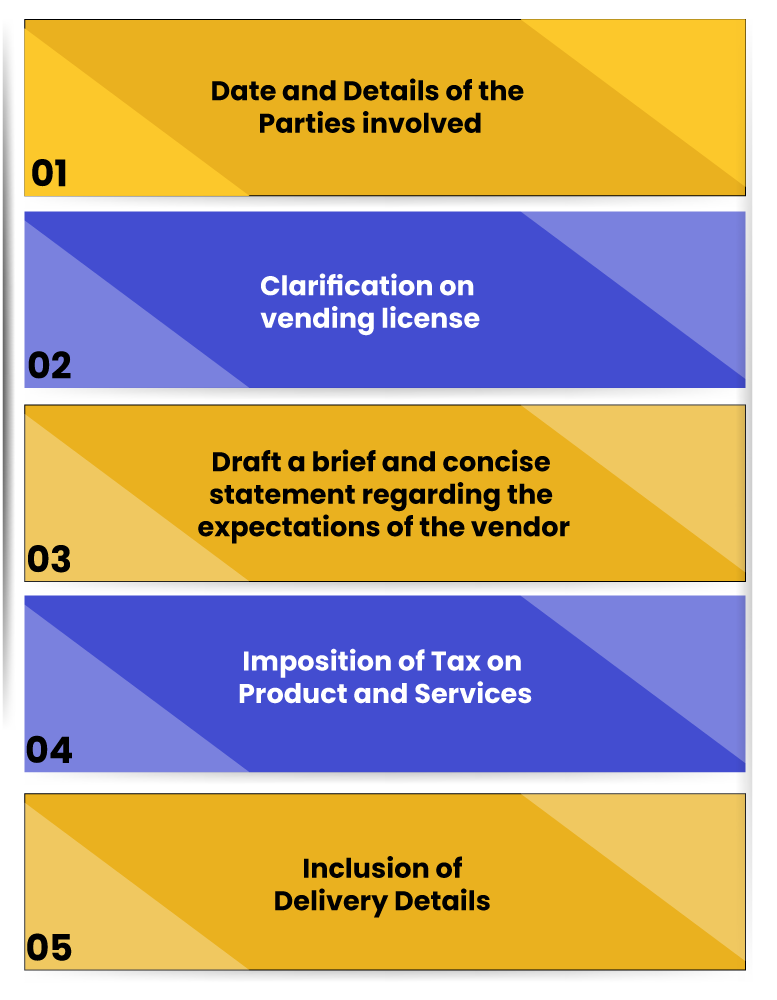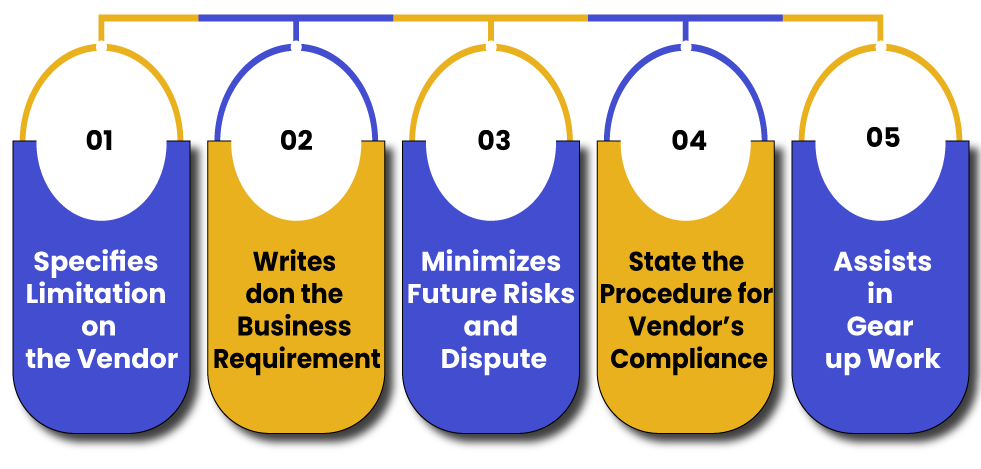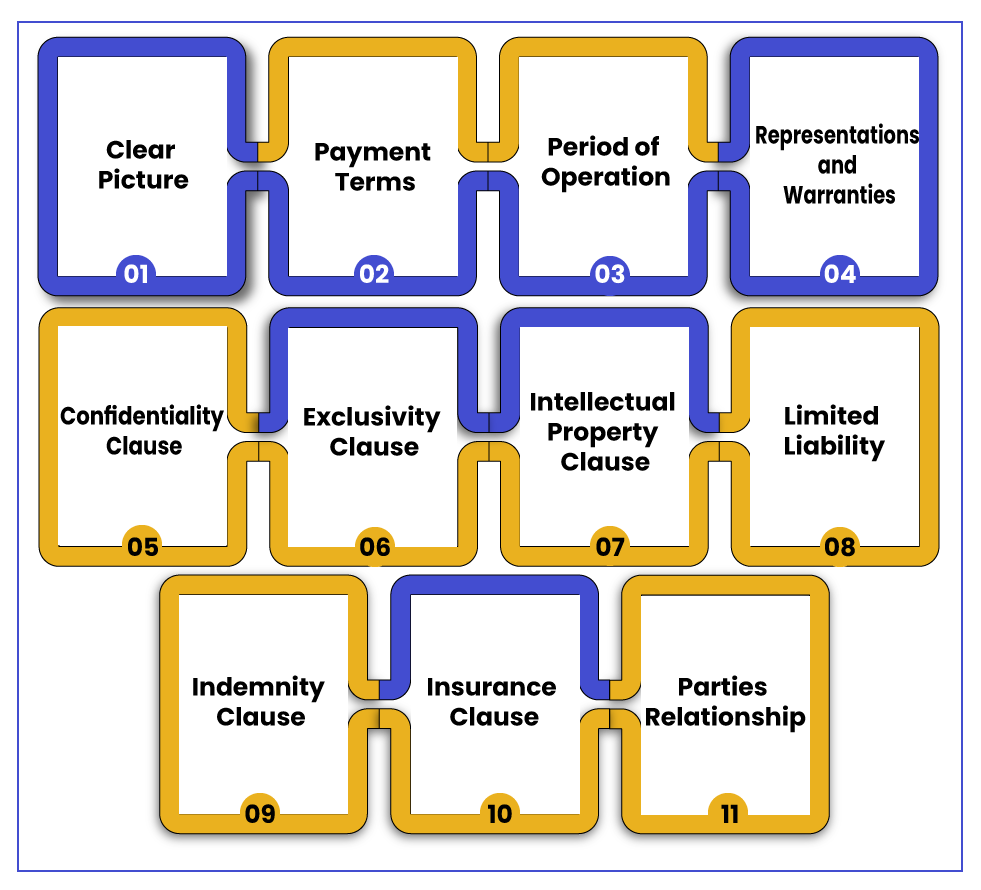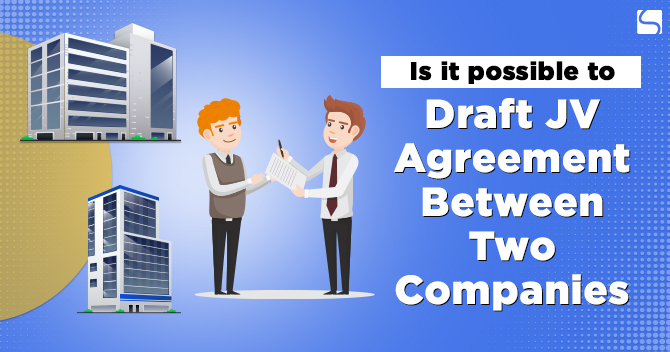Concept and Clauses to be Included in a Vendor Agreement

Shivani Jain | Updated: Nov 05, 2020 | Category: Agreements
The term “Concept and Clauses of Vendor Agreement” denotes a legal document that lays down the provisions and regulations concerning the work performed by a vendor. Further, this contract is drafted for purposes, such as Consultant, Office Supplies, Technology, Services, etc.
Also, it shall be relevant to state that the clauses like Goals, Objectives, Strategies for Minimizing Cost and Risk Factor must be included in a Vendor Agreement.
In this blog, we will discuss the concept and clauses of Vendor Agreement.
Table of Contents
Concept of Vendor Agreement
The term “Vendor Agreement” signifies a legal document that is signed between the business owner and the vendor of goods and services. Further, it must be accompanied by SOW (Statement of Work). Also, the key elements of a Vendor Agreement are Time, Date, Location of Service, etc.
Also, it shall be relevant to state that a Vendor Agreement is governed and regulated by the provisions of the Indian Contract Act 1872. Also know, the format of Legal notice and in which cases it can be sent.
Key Requirements of Vendor Agreement
The key requirements of a Vendor Agreement are as follows:

- Date and Details of the Parties involved, such as names, addresses.
- Clarification on vending license in order to check whether the said organization is allowed to deal with the product or not.
- Draft a brief and concise statement regarding the expectations of the vendor.
- Imposition of Tax on Product and Services.
- Inclusion of Delivery Details.
Benefits of Vendor Agreement
The benefits of a Vendor Agreement are as follows:

- Specifies Limitation on the Vendor.
- Writes don the Business Requirement.
- Minimizes Future Risks and Dispute.
- State the Procedure for Vendor’s Compliance.
- Assists in Gear up Work.
Key Elements of Vendor Agreement
The key elements of the Vendor Agreement are as follows:
- Specify the goods and services that will be offered.
- Mention the modes of payment.
- Describes the manner in which clients will be billed.
- Manner of contacting the person for Account Payable details.
- Includes Statement of Work (SOW)[1].
- Provides Knowledge regarding the State Laws and Legal Requirements.
- Insurance
- A vendor is not eligible for any type of Employment Benefits.
- Acts as the basis to show that the vendor is an Independent Contractor.
- Mode of Terminating Vendors Agreement.
- Reimbursement or Payment of Attorney Fees.
Important Clauses of Vendor Agreement
The important clauses of Vendor Agreement are as follows:

Clear Picture
The term “Clear Picture” denotes the proper description, which is given regarding a particular product or service.
Payment Terms
The Payment Terms signifies the proper costing mechanism regarding the following:
- How much Payment is Due or Outstanding.
- Mode of Payment.
- Interest for Late Payment
- Terms of Payment
- Penalties for Late Payment
Period of Operation
The Period of Operation acts as one of the significant clauses of Vendor agreement. Further, this clause mainly talks about the tenure for which the functioning and operations are valid, and for how long it is legally binding for the parties. Also, the term “Period” signifies the beginning and completion date of the services.
Representations and Warranties
Another one of the significant clauses of vendor agreement is Representations and Warranties. It includes all the terms and conditions regarding the contract. Also, the parties must be comfortable with the stipulations laid down before signing the document.
Confidentiality Clause
This clause plays a pivotal role in the contract and protects the leakage and breach of data and information included.
Exclusivity Clause
The term “Exclusivity Clause” denotes the exclusive relationship between the vendor and business owner as the product or service is unique and significant to the business.
Intellectual Property Clause
The Intellectual Property Clause is provided only by the business owners, and it aims to mitigate the risk one might get after the grant of Intellectual property license.
Limited Liability
In the case of the vendors, the liability is limited to the extent of thecost of services. However, from the business point of view, if something goes wrong, then the party must ask for the damages incurred more than the cost of services.
Indemnity Clause
The term “Indemnification” means when one of the parties shows the interest to bear all the losses incurred by other parties under ambiguous circumstances.
Insurance Clause
In India, the insurance clause serves the basis and assurance of safety for the parties involved in the contract.
Parties Relationship
As per this clause, the vendor must be considered as an Independent Contractor, i.e., he is not an employee for the business owner. Also, it shall be relevant to state that this clause clarifies that no one can act for or on behalf of the Vendor.
Also, Read: Penalties Under GST Act- Why One Nation One Tax?
What is the Process to Draft Vendors Agreement?
The steps involved in the Process to Draft a Vendor Agreement are as follow:
- Firstly, hire an expert lawyer for the drafting of a customized Vendor Agreement.
- After that the lawyer will send a copy of the drafted vendor agreement for review and approval.
- It shall be relevant to note that a Vendor Agreement must include all the suggestions made by the parties involved.
Conclusion
In a nutshell, a vendor agreement is an enormously important legal document or contract for any business. Also, the terms and conditions of a vendor agreement vary for each vendor.
However, a business must not settle with the vendor agreement templates available online as those agreements contain only the simple and basic components and may not essentially protect the business from any legal challenges unthought of.
Therefore, it is always advisable to contact experts for the drafting of a Vendor Agreement. At Swarit Advisors, our experts will assist with the drafting and execution of Vendor Agreement.
Sample Vendor Agreement Format in India
Agreement_with_VendorAlso, Read: How to become a Payment Gateway Service Provider in India














